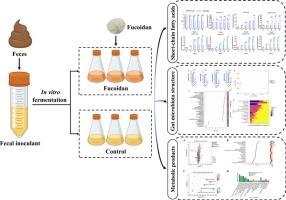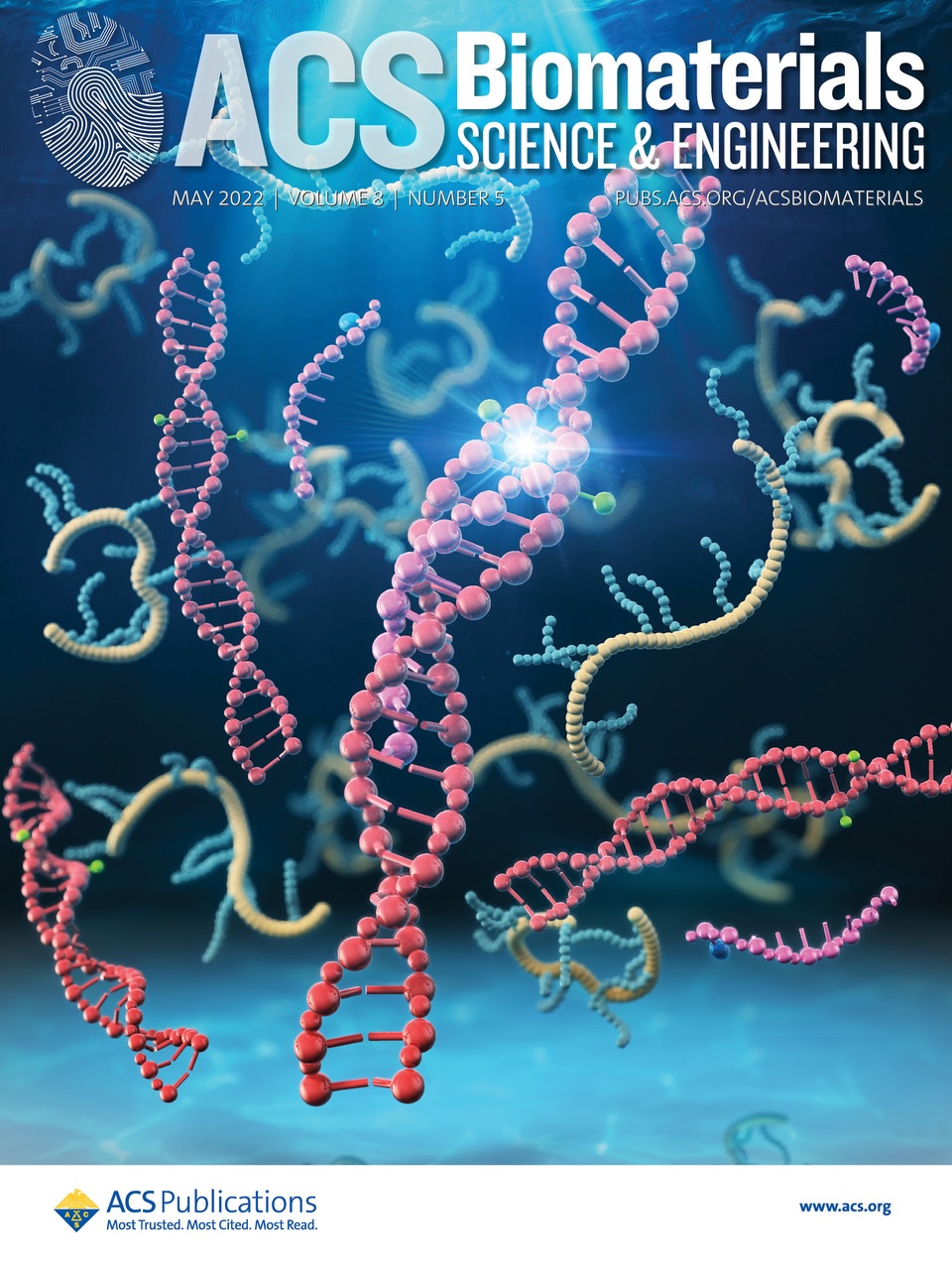褐藻糖胶的体外发酵特性及其对人体肠道微生物群和代谢物的调节作用
IF 5.4
2区 医学
Q2 MATERIALS SCIENCE, BIOMATERIALS
引用次数: 0
摘要
膳食多糖会影响宿主体内的肠道微生物及其代谢产物。阐明多糖、肠道微生物群及其代谢产物之间的关系有助于制定膳食营养干预策略。因此,我们探讨了褐藻糖胶对人体肠道微生物群及其代谢产物的调节作用。发酵48小时后,褐藻糖胶明显降低了肉汤中的pH值,同时增加了总短链脂肪酸、乙酸和丙酸的含量。褐藻糖胶明显降低了志贺氏菌和博莱氏菌的相对含量,提高了双歧杆菌和乳酸杆菌的相对含量。同时,褐藻糖胶改变了肠道微生物代谢物的组成。这些结果表明,褐藻糖胶可以调节肠道菌群和宿主的新陈代谢,从而有助于宿主的肠道健康。本文章由计算机程序翻译,如有差异,请以英文原文为准。

In vitro fermentation characteristics of fucoidan and its regulatory effects on human gut microbiota and metabolites
Dietary polysaccharides affect the intestinal microorganisms and their metabolites in the host. Clarifying the relationship among polysaccharides, intestinal microflora, and their metabolites is helpful to formulate dietary nutrition intervention strategies. Thus, we explored the regulatory effects of fucoidan on the human gut microbiota and its metabolites. After 48 h of fermentation, fucoidan significantly reduced the pH value in the broth, accompanied by an increase in total short-chain fatty acids, acetic acid, and propanoic acid contents. Fucoidan significantly reduced the relative abundance of Escherichia_shigella and Blebsiella and increased the relative abundance of Bifidobacterium and Lactobacillus. Concurrently, fucoidan altered the composition of intestinal microbial metabolites. These results indicate that fucoidan can regulate the metabolism of the intestinal flora and host, which may contribute to the intestinal health of the host.
求助全文
通过发布文献求助,成功后即可免费获取论文全文。
去求助
来源期刊

ACS Biomaterials Science & Engineering
Materials Science-Biomaterials
CiteScore
10.30
自引率
3.40%
发文量
413
期刊介绍:
ACS Biomaterials Science & Engineering is the leading journal in the field of biomaterials, serving as an international forum for publishing cutting-edge research and innovative ideas on a broad range of topics:
Applications and Health – implantable tissues and devices, prosthesis, health risks, toxicology
Bio-interactions and Bio-compatibility – material-biology interactions, chemical/morphological/structural communication, mechanobiology, signaling and biological responses, immuno-engineering, calcification, coatings, corrosion and degradation of biomaterials and devices, biophysical regulation of cell functions
Characterization, Synthesis, and Modification – new biomaterials, bioinspired and biomimetic approaches to biomaterials, exploiting structural hierarchy and architectural control, combinatorial strategies for biomaterials discovery, genetic biomaterials design, synthetic biology, new composite systems, bionics, polymer synthesis
Controlled Release and Delivery Systems – biomaterial-based drug and gene delivery, bio-responsive delivery of regulatory molecules, pharmaceutical engineering
Healthcare Advances – clinical translation, regulatory issues, patient safety, emerging trends
Imaging and Diagnostics – imaging agents and probes, theranostics, biosensors, monitoring
Manufacturing and Technology – 3D printing, inks, organ-on-a-chip, bioreactor/perfusion systems, microdevices, BioMEMS, optics and electronics interfaces with biomaterials, systems integration
Modeling and Informatics Tools – scaling methods to guide biomaterial design, predictive algorithms for structure-function, biomechanics, integrating bioinformatics with biomaterials discovery, metabolomics in the context of biomaterials
Tissue Engineering and Regenerative Medicine – basic and applied studies, cell therapies, scaffolds, vascularization, bioartificial organs, transplantation and functionality, cellular agriculture
 求助内容:
求助内容: 应助结果提醒方式:
应助结果提醒方式:


